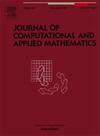利用判断后分层对累积分布函数进行统计推断
IF 2.1
2区 数学
Q1 MATHEMATICS, APPLIED
Journal of Computational and Applied Mathematics
Pub Date : 2024-10-28
DOI:10.1016/j.cam.2024.116340
引用次数: 0
摘要
在这项工作中,我们讨论了基于判断后分层(JPS)抽样方案的累积分布函数(CDF)估计器的一般类别,其中包括经验分布函数和核分布函数。具体来说,我们得到了该类估计器的期望值,并证明只要排名优于随机猜测,它们在渐近上比简单随机抽样(SRS)中的竞争者更有效。我们发现了一个温和的条件,它是它们渐近无偏的必要且充分条件。我们还证明,在相同条件下,该类估计值是真实 CDF 的强均匀一致估计值,并且当样本量接近无穷大时,其分布收敛于正态分布。然后,我们重点研究了 JPS 设计中的核分布函数(KDF),并获得了最优带宽。接下来,我们进行了全面的蒙特卡罗模拟,比较了在不同的样本量、集合大小、排名质量、父分布、核函数以及完美和不完美排名设置下,JPS 设计中的 KDF 与 SRS 设计中的 KDF 的性能。我们发现,与 SRS 竞争对手相比,JPS 估计器在各种设置中都极大地提高了 KDF 的效率。最后,我们将所描述的程序应用于医疗领域的真实数据集,以展示其在实践中的实用性和适用性。本文章由计算机程序翻译,如有差异,请以英文原文为准。
Statistical inference on the cumulative distribution function using judgment post stratification
In this work, we discuss a general class of estimators for the cumulative distribution function (CDF) based on judgment post stratification (JPS) sampling scheme, which includes both empirical and kernel distribution functions. Specifically, we obtain the expectation of the estimators in this class and show that they are asymptotically more efficient than their competitors in simple random sampling (SRS), as long as the rankings are better than random guessing. We find a mild condition that is necessary and sufficient for them to be asymptotically unbiased. We also prove that given the same condition, the estimators in this class are strongly uniformly consistent estimators of the true CDF, and converge in distribution to a normal distribution when the sample size approaches infinity. We then focus on the kernel distribution function (KDF) in the JPS design and obtain the optimal bandwidth. We next carry out a comprehensive Monte Carlo simulation to compare the performance of the KDF in the JPS design for different choices of sample size, set size, ranking quality, parent distribution, kernel function, as well as both perfect and imperfect rankings set-ups, with its counterpart in the SRS design. We find that the JPS estimator dramatically improves the efficiency of the KDF compared to its SRS competitor across a wide range of the settings. Finally, we apply the described procedure to a real dataset from a medical context to show its usefulness and applicability in practice.
求助全文
通过发布文献求助,成功后即可免费获取论文全文。
去求助
来源期刊
CiteScore
5.40
自引率
4.20%
发文量
437
审稿时长
3.0 months
期刊介绍:
The Journal of Computational and Applied Mathematics publishes original papers of high scientific value in all areas of computational and applied mathematics. The main interest of the Journal is in papers that describe and analyze new computational techniques for solving scientific or engineering problems. Also the improved analysis, including the effectiveness and applicability, of existing methods and algorithms is of importance. The computational efficiency (e.g. the convergence, stability, accuracy, ...) should be proved and illustrated by nontrivial numerical examples. Papers describing only variants of existing methods, without adding significant new computational properties are not of interest.
The audience consists of: applied mathematicians, numerical analysts, computational scientists and engineers.

 求助内容:
求助内容: 应助结果提醒方式:
应助结果提醒方式:


